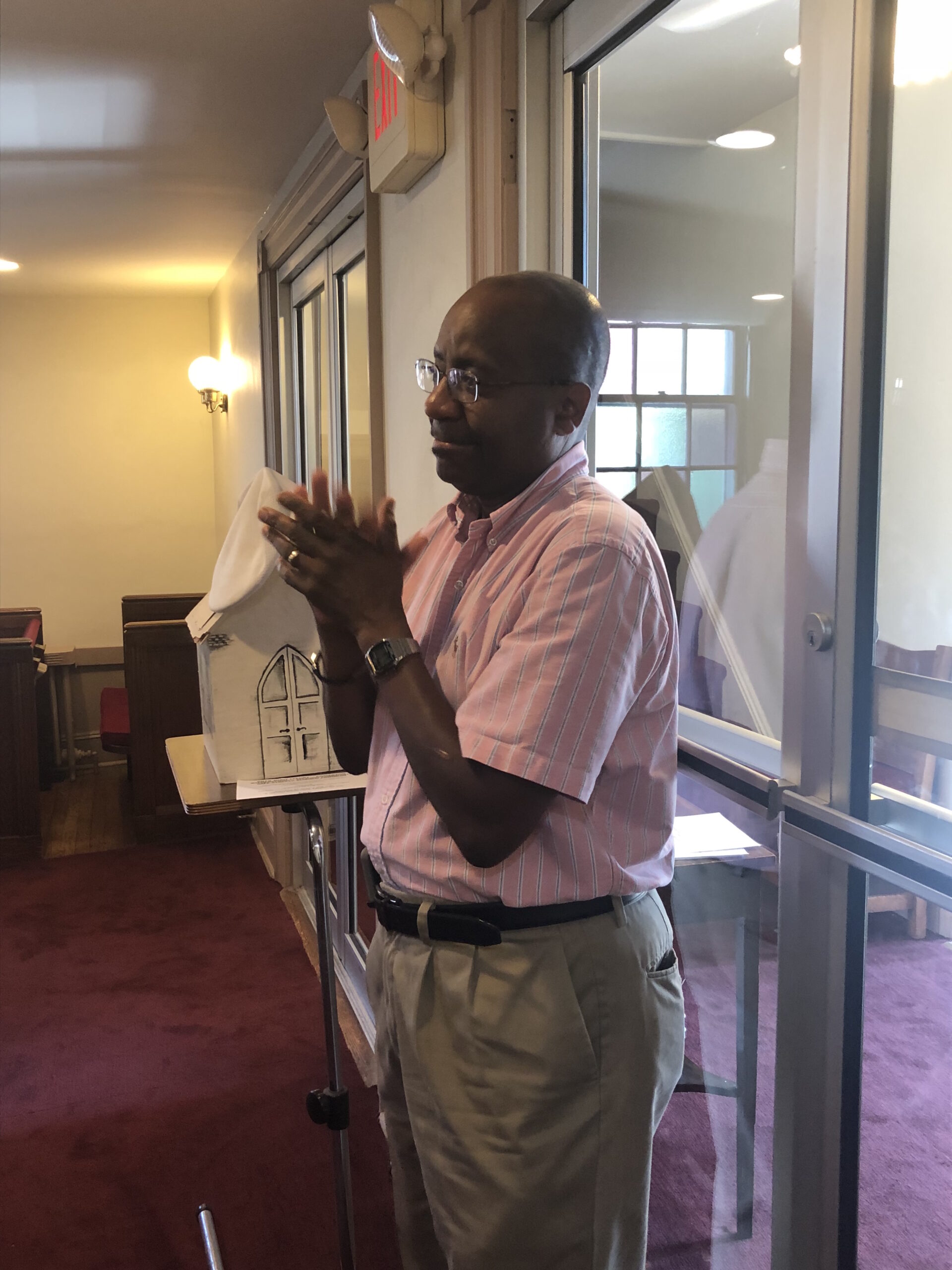The little elderly Jewish lady (yours truly), renowned in Princeton for her hats, put on one of her favorite “crowns” to go to church on Aug. 5.
The visit that Sunday was to the First Baptist Church of Princeton.
My purpose was not to commune with God, but rather to commune with my neighbors participating in a “Joint Effort Princeton Witherspoon-Jackson Community Safe Streets” event, an event that was hosted by a Princeton favorite son, John Bailey.
Although I always had connected intellectually with the mission of the John Bailey’s “Joint Effort” summer program, my emotional, perhaps spiritual, conversion occurred as I was sitting – actually standing, shouting, and clapping – in the congregation. The pulsating and soul-stirring music, plus the unrestrained joy of the people all around me, hit a chord in a way that no spoken words from a podium had done for me previously.
Political consultant John Bailey, who spent his youth in Princeton, feels an unbreakable bond to Princeton’s Witherspoon-Jackson community that embraced and nurtured his family (divorced mother with five children) in the late 50s and 60s.
Based in Denver, Colorado, Mr. Bailey takes his “vacation” every summer by coming back to Princeton and giving back by producing a variety of events (youth basketball clinics, lectures, concerts, citizen awards ceremonies) over the course of 10 days.
His goal is to celebrate the Witherspoon-Jackson residents who represent the culture and history and potential of Princeton’s historic black neighborhood, where I now have the honor of living.
Knowing how much I adore music, Princeton Councilman Lance Liverman – who is chair of the Trustee Board of the First Baptist Church of Princeton, urged me to attend the Witherspoon-Jackson Community Gospel Fest – Stories of Black Voices Through Music and Songs.
I sat in the last row of the church, closed my eyes, and pictured a different Jewish individual – a young composer from Brooklyn named George Gershwin, who attended a black Baptist Church in Folly Beach, South Carolina. His experience in the church led to his inspired creation of the brilliant score of Porgy and Bess. I share none of Gershwin’s genius, but I do share his connection to the highly charged, emotional, gospel music, punctuated with shouts and clapping of hands.
Even though I entered the sanctuary feeling a little tentative about being an interloper, my presence was embraced with the same warmth and welcome experienced by John Bailey when his family first came to town.
No one cared about my skin color, my religious beliefs or my political beliefs – just about my ability to absorb joy with unfiltered gusto. The music exorcised chronic angst out of me, and, as a result, a grin replaced my anxious frown for the entire one-hour program.
One of the performers at the music festival was keyboard player Samuel Frisby, executive director of the Trenton YMCA and longtime Mercer County freeholder.
The music, which means so much to him and his family personally, also helps him do his professional jobs as an administrator and elected official, because the music, he said, is cleansing, restorative, loving and positive.
Lance Liverman, like everyone in the congregation, became enveloped by the joyful music. He echoed Sam Frisby’s comments and added that the music conveys the spirit of love that “can be transformative –moves you to go forward in a better direction. People who are not part of the Baptist tradition have told me they want to have their funeral in our church because of the music of our Unity Choir.”
The euphoria from the music, however, is transitory, even for Lance, who has been attending services at the church for nearly half a century. As a trustee board leader for two decades, Lance is concerned about the future of his church and the other predominantly black churches in the neighborhood.
“Our church – all the churches in the neighborhood – are such a crucial part of our heritage, we can’t let them go away, but congregations are shrinking,” he said. Forty-seven years ago when Lance, at the age of eight, initially began attending First Baptist, the number of active congregants were nearly three times what they are today.
Last year when John Bailey’ s summertime program honored the black churches in town, Lance remarked that “the history of …the black churches are stories of faith, leadership, and community service and need to be told to current and future generations,” he said.
“Sure, we can declare the buildings historic, but the beauty of what goes on inside those churches is what needs to be preserved. The churches have been key to the survival of the black residents in this town and key to keeping the culture and the history of the neighborhood alive. John Bailey’s efforts are heroic and so important, but he is here for only 10 days. We need to work on this all year long,” said Lance.
Lance has ensured the fiscal stability of the church by guiding the church to purchase income-producing rental properties in the neighborhood as an investment. Even if the church stays on solid fiscal ground, Lance worries about losing more congregants who make it possible for the church to offer programs to feed and clothe the poor, connect people to their heritage – and relieve angst of a handful non-Baptists transformed by the its soulful music.
For upcoming music and special events to which the entire community is welcome, please go to http://1stbcpnj.org/index.html.

